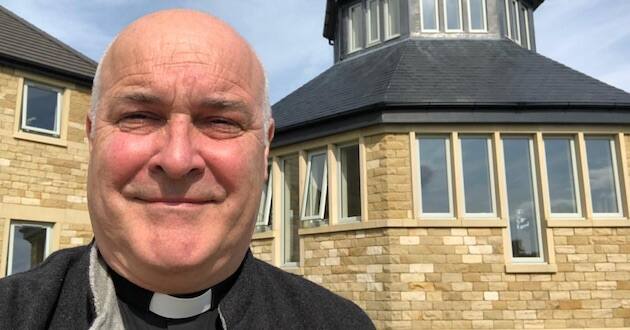Bishop backtracks about not using “our father” in Lord’s Prayer

An Anglican archbishop is walking back earlier controversial comments about using the phrase “our father” in prayer. Steve Cottrell, the archbishop of York, had suggested that the reference might be problematic for people who have suffered abuse from fathers or male clergy.
“A few weeks ago, I found myself a little misunderstood when I pointed out that some people who have never known a father present in their life, or worse, been abused or neglected by their father, may find this word challenging,” he wrote. “But what I wasn’t saying is that we should stop using the word — simply that we need to be sensitive as we lead people in prayer.”
He reinforced that Christians should continue praying to God as “our father” but be mindful of the implications that such language might have on abuse survivors or a bad relationship with their earthly father. The archbishop also underscored the need for healing among victims of abuse and the church’s role in facilitating this healing.
READ: Anglican priest calls bible “silly”
“We help those whose experience of earthly fathers has been negative to discover the healing love of the father of our Lord, Jesus Christ,” he said. “And as has always been the case, we use other language to describe God as well.”
However, his statement sparked strong counterarguments. An opinion piece by Edward Dowler titled “To pray ‘Our Father’ is not problematic,” presented an opposing viewpoint. Dowler argued that while all religious language is metaphorical, the term “father” has a unique standing as it was both explicitly given by Jesus and inspired by the Spirit as the foundation of all Christian prayer. He expressed regret that the archbishop’s key point about unity within the Church was somewhat overshadowed by his commentary on the word “father.”
Canon Dr. Chris Sugden, Chairman of Anglican Mainstream, asked if Jesus was also wrong, asking, “Is the Archbishop of York saying Jesus was wrong or that Jesus was not pastorally aware? I can’t believe he is doing that consciously, but that’s the impression it gives. It seems to be emblematic of the approach of some church leaders to take their cues from culture rather than scripture.”
In February, the Church of England announced the initiation of a project on “gendered language” with respect to God in church services, resulting in a debate about the usage of the pronouns “he” and “him” and the reference to “our father.” The suggestion to replace these with either gender-neutral or female alternatives has been met with both support and criticism.
An opinion piece by Daniel French titled “God the ‘Father’ isn’t sexist,” voiced strong criticism of the notion of replacing the term “father” with gender-neutral or female alternatives. French argued such a move would be both theologically dubious and aesthetically displeasing. He further warned against the church conforming to “woke capitalism,” pointing to what he perceives as a trend of churches increasingly bending to cultural and societal pressures.
Says Sudgen, “If people have had a difficult relationship with their human fathers then the option open to them is to say you can rediscover the true nature of fatherhood through Christ.”
Cottrell’s position is the second highest in the Church of England.
–Dwight Widaman | Metro Voice








